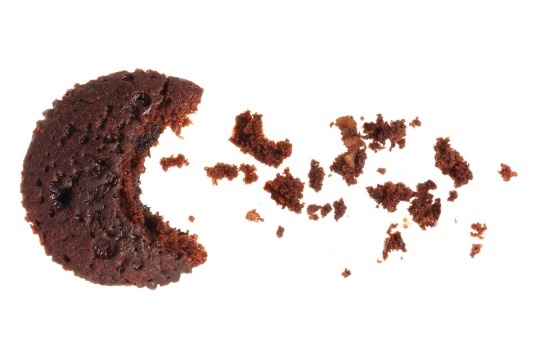Arabic, a language spoken by more than 300 million people around the globe, is one of the most beautiful and unique languages to exist. Having been around for over 1,500 years, Arabic is the official language of 26 countries and one of the 6 official languages of the United Nations.
While knowing more than one language is an excellent skill to have, for both personal and professional reasons, fluency in Arabic is indispensable if you plan to visit an Arab country or, more importantly, wish to work for the government. Additionally, as more businesses plan to expand into the Middle East, knowledge of the Arabic language can support you in securing an excellent job opportunity and also help define your career goals.
While the benefits of knowing the language are aplenty, it can be difficult for native English speakers to master the heavy sounds and pronunciation accurately. Chances are, as a new learner, your web search would probably be full of queries such as ‘how to pronounce Arabic words correctly?’ However, there’s no need to panic! All new language learners go through similar learning curves and once you master those sounds, it becomes pretty straightforward to articulate all the Arabic words perfectly.
So, time to unravel those tongue twisters and help you get started on the journey of perfectly spoken Arabic. Here are some tricky words with pronunciation tips to help you sound just like a native Arabic speaker.
Kahwa = coffee
Wrong pronunciation: ka-wa
Correct Pronunciation: Ka-h-wa
The first letter in the word “Kahwa” is known as the letter “Kaaf” (with K written as a capital letter) and is one of the letters that doesn’t really have a counterpart in English. It can actually be pronounced like a regular k but with the tongue farther back. Hence, the mispronunciation of most words in Arabic often includes the letter “Kaaf”. Also, it is not to be confused with the letter “kaaf” which is softer in sound and written with a small “k”.
More importantly, people usually forget to pronounce the letter “h” that appears in the middle of the word, and that alters the entire meaning of the sentence.
To hear the sounds of the alphabet, check them out in our Arabic Online Course.
Kalb = heart
Wrong pronunciation: kalb (a dog)
Correct pronunciation: Ka –lb (a heart)
Same as the previous one, the capital “K” at the beginning of the word never sounds soft so when learners mispronounce it in the word “Kalb”, the meaning changes from a heart to a dog! It must sound like the final sound in the English word “truck” but with more gruffness to attain perfection.
Additionally, the pronunciation is of two syllables and not just one.
Sabaah l-khayr = Good Morning
Wrong pronunciation: saba l-kayr
Correct pronunciation: Sa-baa-H l-khayr
The first letter in SabaaH l-khayr is the sound-mate of the letter “s” but makes a gruff ‘s‘ sound that isn’t commonly found in other languages.
To pronounce this letter correctly, you must press your tongue against your upper gum area, right where the gum meets your upper teeth, and then make the ‘S’ sound as you should in SabaaH l-khayr.
mashghuul = Busy
Wrong pronunciation: mashuul
Correct pronunciation: mash-ghuu-l
The challenge in pronouncing this word is that it contains one of the hardest sounds in Arabic: “gh”. People have to really train themselves to learn how to pronounce the letter “ghayn”. It is almost a gargling sound produced from the back of the throat. The “gh” sound in Arabic is very similar to the sound of ‘r’ found in the French language.
mu’aal = A Question
Wrong pronunciation: suwal
Correct pronunciation: su – ‘ – aal
This is a very tricky sound found in many Arabic words. The apostrophe that appears in the middle of the word means that you should cut the word into two parts when you pronounce it.
To make it simpler, it would be ideal to pronounce the two parts as 2 different words with a mini pause in between. As an example, the word “butter” in English can be pronounced the same way by dividing it into two parts like bu-‘-ter.
Abu Dhabi
Wrong pronunciation: Abu dabi
Correct pronunciation: Abuu DHa-bii
To pronounce the correct sound of “DH” in Arabic, you need to put your tongues between your teeth. It is similar to the sound of the “th” in the English word “father”. People tend to find it difficult initially but with practice, anybody can perfect it.
baTTa = Duck
Wrong pronunciation: bata
Correct pronunciation: baT-Ta
We need to stress letter “T” in the word “baTTa” because it is doubled and when a letter is doubled in Arabic, it means that we need to double pronounce it or, in other words, emphasize it.
juu:aan = Hungry
Wrong pronunciation: jo-anne
Correct pronunciation: juu-:aan
The colon in the word “juu:aan” represents one of the hardest Arabic sounds and does not have any sort of substitute sound in the English language. While it has many possible transliterations, you shouldn’t be surprised to see it represented by the number 3 in some of the words (for example, ju3aan). Most people drop the sound simply because they cannot pronounce it.
na:na: = Mint
Wrong pronunciation: nana
Correct pronunciation: na:na:
The pronunciation of this word is similar to the previous example and the best way to learn it is would be to listen to a native speaker’s pronunciation and practice incessantly. It is a sound made by constricting the muscles of the larynx so that the flow of air through the throat is partially choked off.
na:am = Yes
Wrong pronunciation: nam
Correct pronunciation: na:am
Learners need to pay attention to the pronunciation as a different pronunciation might change the meaning entirely. It changes from the word “yes” to the verb “to sleep” in the imperative form!
baHr = Sea
Wrong pronunciation: bar
Correct pronunciation: baHr
The capital H in the word ‘baHr’ is another purely Arabic sound that can be produced similar to a hissing ‘h’. It can be transliterated using number 7 as well in the following way: ba7r.
Faransaa = France
Wrong pronunciation: Fa-ran-s-yaa
Correct pronunciation: Fa-ran-saa
Lots of learners tend to add a “y” before the last syllable in the word “faransaa” for no apparent reason. This could probably because countries such as Germany, Australia & Bulgaria finish with the “-yaa” ending for many words either due to their accents or their mother tongue. However, in Arabic, this is not a general rule and must not be confused when speaking in the Arabic language.
Conclusion
Learning a new language is an extremely personal experience, fruitful to each individual in a different way. Regardless of that, it’s important to remember that all new learners face similar difficulties and challenges along the way. What matters is to overcome these difficulties through practice and dedication. The benefits of knowing Arabic will outweigh all the challenges, right from being able to communicate successfully with a native Arabic speaker to landing your dream job in Dubai. The benefits also include forming lifelong friendships and connections with people of different backgrounds and cultures – all priceless! So, stop searching for easy solutions to ‘how to pronounce Arabic words’ and start practicing them! Arabic has 9 regional dialects, so, once you’ve perfected your pronunciation of Modern Standard Arabic (MSA), you can switch to other dialects with ease.
For more sounds of the alphabet, learn Arabic online from the comfort of your home.
Andrie Steliou
Latest posts by Andrie Steliou (see all)
- 8 Ways to Help Keep Your Child Focused and Engaged in Online Learning - October 19, 2022
- How to Improve Social Intelligence Skills? - May 10, 2022
- How to Improve Organizational Skills at Workplace? - May 6, 2022













